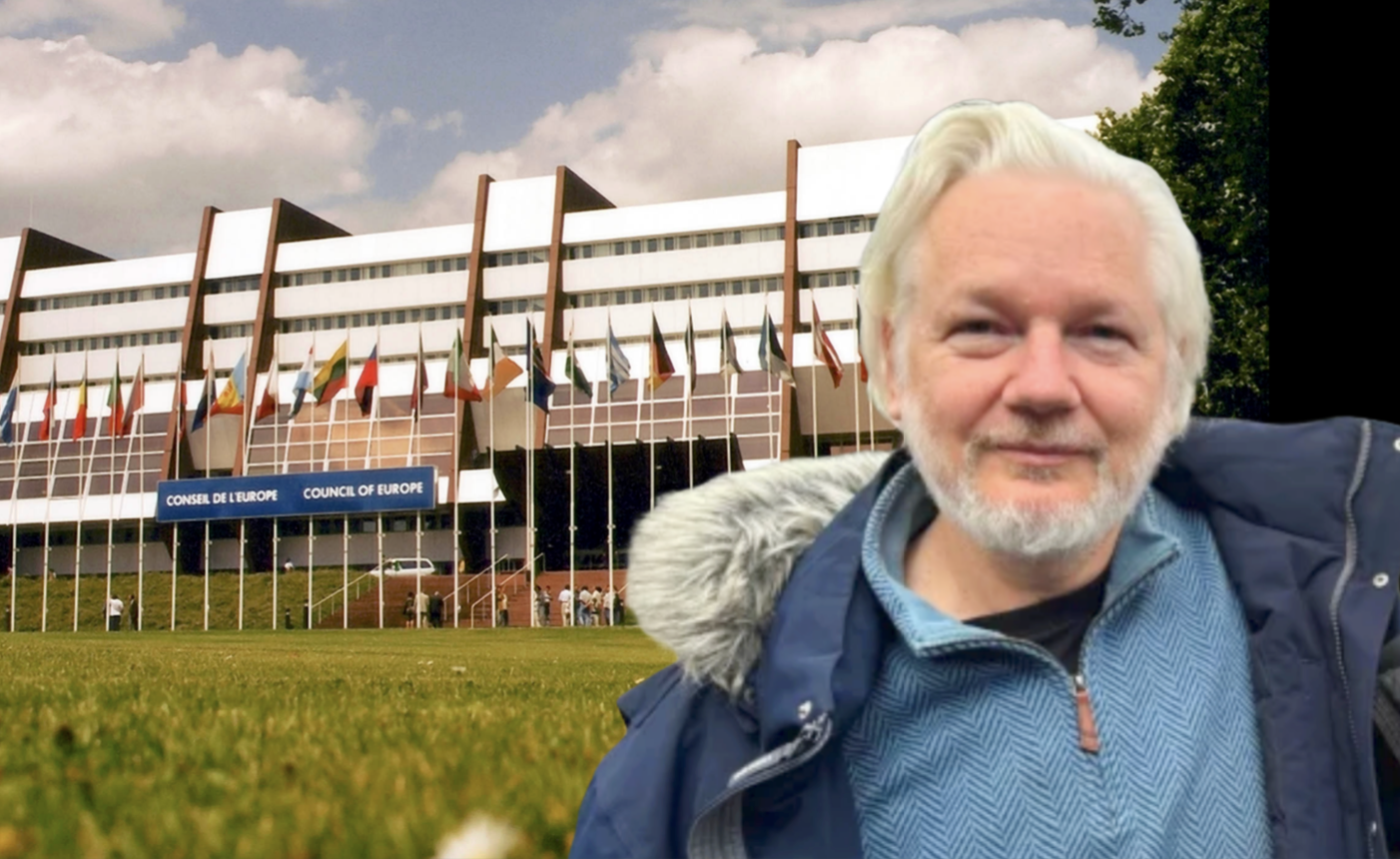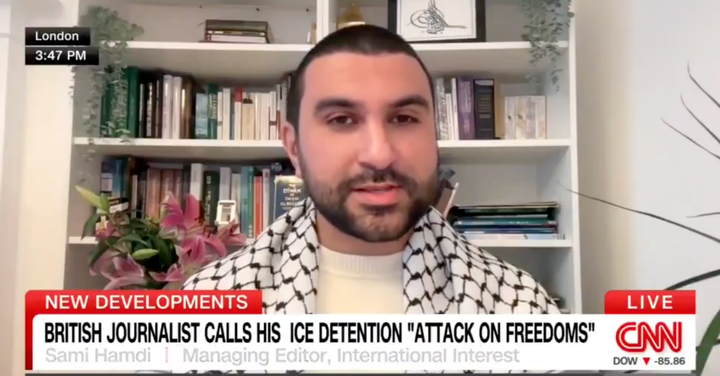Assange To Testify On Political Imprisonment For Engaging In Journalism
It will be Assange's first public testimony since he was arrested and expelled from Ecuador’s London embassy in 2019.

The following article was made possible by paid subscribers of The Dissenter. Become a subscriber and support independent journalism on press freedom.
WikiLeaks founder Julian Assange will travel to Strasbourg, France, and testify before the Council of Europe’s Committee on Legal Affairs and Human Rights on October 1. It will be his first public testimony since he was arrested and expelled from Ecuador’s London embassy in 2019.
The committee is part of the Parliamentary Assembly of the Council of Europe, an international body that is made up of parliamentarians from each European Union member state. Assange will contribute testimony on the political nature of the United States government’s prosecution against him, which ended in a plea agreement in June.
Consideration of Assange’s political imprisonment is part of a wider examination by the assembly of the increased threats to journalists and whistleblowers in Europe, and it was initiated while Assange was still detained at Belmarsh.
On May 13 and 14, Ævarsdóttir traveled to the United Kingdom to visit Assange in His Majesty’s Prison Belmarsh. She talked with Assange for two hours and also met with his wife Stella Assange, his solicitor Gareth Peirce, David Morris, who is the chair of the U.K. delegation to the assembly, and Jeremy Corbyn, a member of the assembly. She met with several former UN officials, lawyers, journalists, psychiatrists, human rights defenders, and civil society representatives, too.
Even though the U.K. Home Office was the office that approved the extradition request against Assange, the office declined to make a representative available for a meeting with Ævarsdóttir.
Þórhildur Sunna Ævarsdóttir, the general rapporteur for political prisoners and an Icelandic parliamentarian who serves on the Committee on Legal Affairs and Human Rights, compiled a report on Assange. It concluded that he meets the assembly’s definition of a political prisoner.
“[Assange’s] indictment under the U.S. Espionage Act for core journalistic activities, such as obtaining and publishing information of high public interest, is a manifestly disproportionate interference with his freedom of expression,” Ævarsdóttir asserted. “I further believe that his prosecution in the United States and resulting lengthy detention in the United Kingdom were motivated by the intention to hide governmental wrongdoings and dissuade others from following Mr Assange’s lead.”
“As such, Mr Assange’s detention was primarily motivated by considerations of political nature.”
A draft resolution calls out the United States government for “misusing” the 1917 Espionage Act to prosecute Assange. It states that the charges pursued against Assange “caused a dangerous chilling effect, dissuading publishers, journalists and whistle-blowers from reporting on governmental misconduct, thus severely undermining freedom of expression and opening room for further abuse by State authorities.”
It is recommended that the U.S. government reform the Espionage Act and “make its application conditional to the presence of a malicious intent to harm the national security of the United States or to aid a foreign power” and “exclude the application of the Espionage Act to publishers, journalists and whistle-blowers who disclose classified information with the intent to raise public awareness and inform on serious crimes, such as murder, torture, corruption, or illegal surveillance.”
Additionally, the proposed resolution urges the U.S. government to investigate the “alleged war crimes and human rights violations disclosed by WikiLeaks and Mr. Assange, holding those responsible to account and tackling a culture of impunity towards State agents or those acting at their behest.”
It demands that U.S. officials cooperate “in good faith with the Spanish judicial authorities” who are investigating the surveillance operation that was conducted against Assange, his family, and his legal team while he was living under political asylum in the embassy.
Over the objection of Richard Keen, a Conservative Party politician in the U.K. Parliament, the draft resolution expresses dismay about the fact that the U.K.—a member state—aggravated the political persecution that Assange endured by ignoring evidence of torture and abuse.
“[T]he authorities of the United Kingdom failed to effectively protect Mr Assange’s freedom of expression and right to liberty, exposing him to lengthy detention in a high-security prison despite the political nature of the most severe charges against him,” according to the draft resolution. “His detention with a view to extradition far exceeded the reasonable length acceptable for that purpose.”
“The Assembly regrets that the Extradition Act of 2003 removed the political offence exemption from United Kingdom extradition law, exposing dissidents and opposition members to the risk of being extradited to States prosecuting them on political grounds,” the draft resolution states.
As part of the resolution, Council of Europe member and observer states are encouraged to protect whistleblowers who are threatened with retaliation, including by offering asylum. It recommends that individuals facing charges for journalistic activities not be extradited and that whistleblower protection laws and reporters’ shield laws be expanded.
Keen submitted a dissent against the report on Assange’s political imprisonment, moaning about how it “belittles the fate of true political prisoners,” like those detained in Russia. He insisted Assange was not tortured while he was held at Belmarsh.
In particular, Ævarsdóttir challenged an aspect of the plea agreement that criminalized Assange for publishing “raw classified documents.”
“Over 13 years have passed since the publication of the unredacted materials, [and] no evidence has been produced showing that WikiLeaks' publications have harmed anyone,” Ævarsdóttir declared. “The plea agreement itself clearly states that ‘[a]s of the date of the Plea Agreement, the United States has not identified any victim qualifying for individual restitution and, thus, is not requesting an order of restitution.’”
“I find it paradoxical that while Mr. Assange revealed thousands of actually confirmed and previously unreported deaths at the hands of US and coalition forces in Iraq and Afghanistan, he was the one to be accused of putting multiple lives at risk, without any evidence of that claim being presented.”
Ævarsdóttir was alarmed that U.S. prosecutors insisted on Assange "pleading guilty to a charge under the Espionage Act rather than accepting his defence that he was acting as a journalist in the public interest when he published the classified materials."
Previously, representatives of the Council of Europe have openly supported Assange. Dunja Mijatović, who was the Council of Europe’s Commissioner for Human Rights, opposed the extradition in February 2020 and January 2022 because of the “global chilling effect” it would have on freedom of the press. Pieter Omtzigt, who was the assembly’s general rapporteur on the protection of whistleblowers, spoke out on the case in September 2021 and January 2022.
The assembly adopted a resolution in 2011 that "welcomed the release by WikiLeaks of diplomatic cables" that confirmed "the truth of allegations of secret detentions and illegal transfers of detainees" by the CIA.




Comments ()